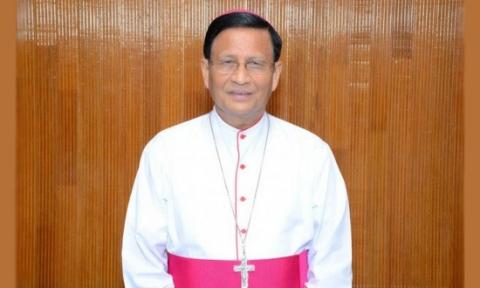
The following article, written by Maryknoll Affiliate Chris Smith, a Washington, D.C.-based writer, was published in the May-June 2015 NewsNotes.
Myanmar has seen rays of hope as it moves away from the military junta to a more inclusive, democratic system of government. In March 2015 the ruling government reached tentative cease fire agreements with numerous armed rebel groups. The reform process in the country has been gaining momentum since most international sanctions imposed by western countries were lifted in 2013.
A majority Buddhist country, its people have been plagued by ethnic violence that has focused on the Muslim minority, in particular the Rohingya people of the Rakhine state. The Rohingya population largely live in temporary camps lacking basic sanitation and related services and face insufficient employment opportunities while being hampered by travel restrictions.
Another significant issue in Myanmar is human trafficking. The U.S. State Department’s annual country rankings of human trafficking were marked by an upgrade in 2012 when Myanmar’s status at the bottom tier (of four categories) – which it held from 2007 through 2011 – improved to “Tier 2-Watch List.” The 2014 report noted that the government’s written plan to address the problem would “constitute making significant efforts to meet the minimum standard for the elimination of trafficking.” The key, however, is ensuring that vigorous enforcement of the plan occurs, something that has been lacking to this point.
As the people of Myanmar grapple with the legacy of the military junta and international sanctions, they have found a strong ally in newly-appointed Cardinal Charles Bo (shown in photo). Previously archbishop of Yangon, Cardinal Bo was appointed by Pope Francis as Myanmar’s first cardinal in December 2014. He serves 800,000 Catholics in a country of 51 million people. Pope Francis has made it a point to expand the Church leadership to countries that had previously lacked representation in the College of Cardinals.
In his Christmas homily, Cardinal Bo noted that 2014 marked the Church’s jubilee year in Myanmar and proclaimed his central message as “Do not be afraid,” citing the Gospel of Matthew (1:20). He notes that elections will be coming to the country and that “Now like the Israelites we await with hope – will this land become a land of promise and prosperity to all?” He reminded the people that Christ was born during a period of cruelty and oppression in the Roman Empire and stated:
“Amidst all political oppressions, Christ, our Savior never forgot human needs. For he proclaimed ‘Good news to the poor, liberty to captives and freedom to [the] oppressed.’” (Luke 4:16-18).
Cardinal Bo recounted Myanmar’s history as a resource-rich country (gold, jade, ivory, teak, etc.), and compared that Myanmar to Korea, Singapore, Malaysia and Thailand. “We were [then] reduced to one of the poorest countries on earth. Genius at work! Poverty and oppression sent millions to exile. Our sons and daughters became the modern day slaves in the nearby countries. We became the least developed country.”
He also criticized the imbalance between large companies “investing” in Myanmar while average citizens suffer economic and political deprivation:
“Yes – you deserve a better life; do not be afraid of challenging those who steal your future from you. Keep an eye on those who loot the resources. Do not be afraid of resisting the injustice where the foreigners and the companies that come to grab our land living in five star hotel luxury and the poor Myanmarese (Burmese) who resist are thrown into inhuman prisons.”
In his recent Easter message, the cardinal notes that the ceasefire agreement is a sign of hope, but “must give way to peace based on justice.” He adds: “Do not bury our people once again into poverty. Do not open their resources to international looters and cronies. Myanmar people seek justice and fair play.” Cardinal Bo also highlighted the need for “reconciliation among communities.” There are 300,000 internally displaced people in Myanmar, with 120,000 in Kachine state and 120,000 in Rakhine state. “These people are the Lazarus of Myanmar. They are the people of Exodus.”
Myanmar has been afflicted by ethnic conflict, poverty, the exploitation of its natural resources and restrictions on political expression. Yet Cardinal Bo sees the Easter season as a sign of hope for his country:
“The Easter Christ is faithful in our work of salvation. We fear no one. We love all. So we will continue to work for peace and justice in this land bringing mercy and promoting reconciliation among communities. We are Easter people and our Lord is a trustworthy partner in our long march of mercy and reconciliation.”
